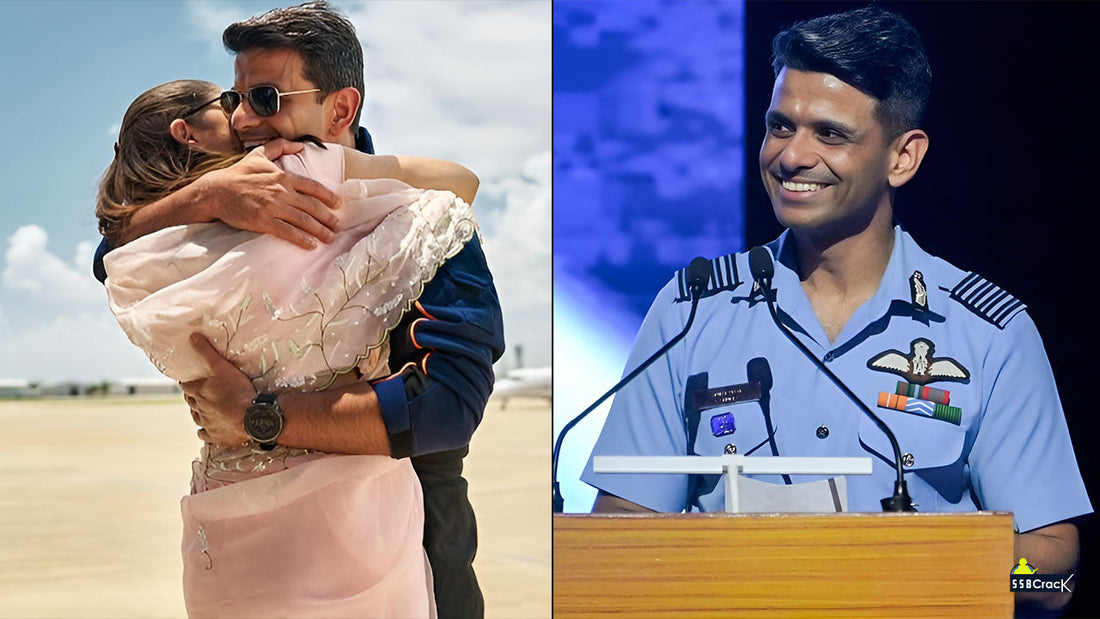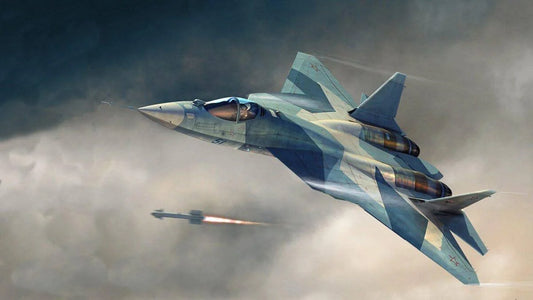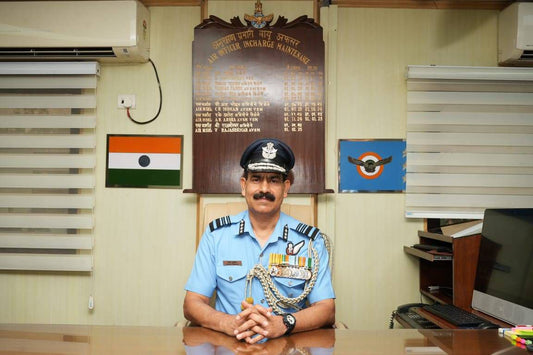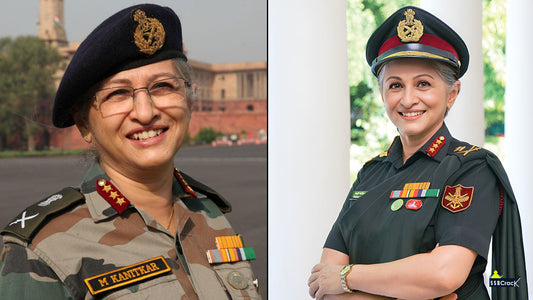5 Inspiring Facts About Group Captain Shubhanshu Shukla: First ISRO Astronaut To Visit The International Space Station

Group Captain Shubhanshu Shukla stands as a beacon of inspiration in India's evolving space narrative, embodying the spirit of perseverance, innovation, and national pride. As the first astronaut from the Indian Space Research Organisation (ISRO) to visit the International Space Station (ISS), his journey from a middle-class upbringing in Lucknow to orbiting Earth aboard a SpaceX Crew Dragon capsule captures the essence of turning dreams into reality.
This detailed exploration delves into five inspiring facts about his life and career, weaving in the broader context of his achievements, the challenges he overcame, and the impact he has had on India's space program. Drawing from his early inspirations, military excellence, rigorous training, historic mission, and enduring legacy, Shukla's story is not just about personal triumph but also about contributing to humanity's quest for knowledge beyond our planet.

1. Determination from a Young Age: A Secret Application That Changed Everything
Shubhanshu Shukla's path to the stars began in the earthly confines of Lucknow, Uttar Pradesh, where he was born on October 10, 1985, as the youngest of three siblings in a middle-class family. His father, Shambhu Dayal Shukla, worked as a government officer, while his mother, Asha Shukla, was a homemaker who instilled values of discipline and education. Growing up during a time of national fervor, Shukla was profoundly influenced by the 1999 Kargil War, which erupted when he was just 13 or 14 years old.
The heroic tales of Indian soldiers defending the nation's borders against Pakistani intruders in the rugged Himalayan terrain left an indelible mark on him. This event, combined with witnessing an Indian Air Force (IAF) airshow, sparked his aspiration to join the armed forces making him the first in his family to do so.
At the age of 17, in a display of youthful audacity and determination, Shukla secretly filled out an application for the National Defence Academy (NDA) using a friend's form, without informing his parents. This clandestine act was driven by his fear of parental disapproval, as his family had envisioned a more conventional career path for him. To his surprise and eventually his family's he cleared the rigorous entrance exam and was admitted to the NDA in Pune. His elder sister, Suchi, played a pivotal role in convincing their parents to support his decision, turning what could have been a family conflict into a united front of encouragement.
This fact is particularly inspiring as it underscores the power of self-belief and taking calculated risks, even in the face of uncertainty. Shukla's early choice not only launched his military career but also set a precedent for pursuing passions quietly yet resolutely, a trait that would define his later accomplishments in space exploration.
Shukla's schooling at City Montessori School in Lucknow further nurtured his interests in technology and aviation, where he excelled academically. He went on to earn a Bachelor of Technology (B.Tech.) from the NDA and later pursued a Master of Technology in Aerospace Engineering from the prestigious Indian Institute of Science (IISc) in Bangalore.
These educational milestones equipped him with the technical foundation necessary for his dual roles in aviation and space, blending theoretical knowledge with practical application.

2. Exemplary Military Career: Mastering the Skies as a Fighter and Test Pilot
Shukla's entry into the Indian Air Force marked the beginning of a stellar military career characterized by expertise, leadership, and innovation. Commissioned into the IAF's fighter stream in June 2006 after training at the Air Force Academy in Dundigal, he quickly rose through the ranks. By mid-2024, he had accumulated over 2,000 hours of flight experience across a diverse array of aircraft, including the Sukhoi Su-30 MKI, MiG-21, MiG-29, Jaguar, Hawk, Dornier, and An-32. This extensive flying log not only highlights his proficiency but also his adaptability in handling both frontline combat jets and transport aircraft.
Promoted to Wing Commander in June 2019 and then to Group Captain in March 2024, Shukla served as a combat leader and test pilot, roles that demanded precision, quick decision-making, and a deep understanding of aerospace systems. His work with the Aircraft and Systems Testing Establishment (ASTE) involved evaluating and certifying new aviation technologies, contributing to the IAF's operational readiness. In 2019, he was selected through the Institute of Aerospace Medicine (IAM) for the IAF's astronaut program, a testament to his exceptional skills among thousands of applicants.
This phase of his career is inspiring for its demonstration of sustained excellence in high-risk environments. Shukla's ability to transition from routine flights to cutting-edge testing roles illustrates the importance of continuous learning and pushing personal boundaries. His military background also provided the discipline needed for space missions, where split-second judgments can mean the difference between success and failure. Today, his story motivates young pilots and engineers in India, showing how defence service can be a gateway to global scientific endeavors.

3. Rigorous Path to Space: Enduring Training for Galactic Ambitions
Selected in 2019 as one of four astronauts for ISRO's Gaganyaan program India's first human spaceflight initiative Shukla embarked on a grueling training regimen that tested his physical, mental, and emotional limits. Alongside Group Captains Prasanth Balakrishnan Nair, Ajit Krishnan, and Angad Pratap, he trained at Russia's Yuri Gagarin Cosmonaut Training Center in Star City, Moscow, from 2020 to 2021. The program covered survival training in extreme environments, microgravity simulations, space medicine, spacecraft systems, and orbital mechanics. Upon returning to India, he continued advanced training at the Astronaut Training Facility in Bengaluru.
The Gaganyaan mission aims to send up to three astronauts into low Earth orbit aboard an indigenous spacecraft, making India the fourth nation to achieve this feat after Russia, the US, and China. Shukla's selection was unveiled by Prime Minister Narendra Modi on February 27, 2024, elevating his profile as a national hero. This fact inspires through its portrayal of resilience; astronaut training involves enduring isolation, physical strain, and technical complexity, often far from family. Shukla's commitment, despite being married to dentist Dr. Kamna Shubha Shukla and having a young son, highlights the sacrifices behind such pursuits. His bilingual fluency in English and Hindi also aided in international collaborations, bridging cultural gaps in space training.

4. Historic ISS Mission: Pioneering India's Presence in Orbit
In a landmark achievement, Shukla became the first Indian astronaut to visit the ISS as the pilot of Axiom Mission 4 (Ax-4), launched on June 25, 2025, from NASA's Kennedy Space Center aboard a SpaceX Falcon 9 rocket. The mission, a collaboration between Axiom Space, NASA, ISRO, and partners from Poland and Hungary, docked with the ISS on June 26, 2025. Shukla spent approximately 18 days aboard the station, returning to Earth on July 15, 2025, via a splashdown in the Atlantic Ocean.
As mission pilot, he worked alongside Commander Peggy Whitson (US), Mission Specialist Sławosz Uznański (Poland, ESA), and Tibor Kapu (Hungary), conducting over 60 microgravity experiments from 31 countries. These included seven India-specific studies on cancer growth in space, crop seed development under spaceflight conditions, space radiation biology, and microalgae-based oxygen production systems. Shukla served as a liaison between ISRO and international teams, fostering global cooperation. This mission made him the second Indian in space after Wing Commander Rakesh Sharma's 1984 Soyuz flight to Salyut 7, ending a 41-year gap.
The inspiring element here lies in the national significance: Shukla's voyage symbolized India's ascent as a space power, boosting STEM education and inspiring millions. Post-mission, he underwent a seven-day rehabilitation program, reflecting the physical toll of space travel. His role paves the way for Gaganyaan's crewed launch, expected in late 2026 or early 2027.

5. Inspiring Legacy: Balancing Family, Nation, and Future Generations
Beyond his professional feats, Shukla's ability to balance a high-octane career with personal life adds a human dimension to his story. Married to Dr. Kamna Shukla and father to a young son, he credits his family's support as crucial to his success. This fact inspires by showing that extraordinary achievements are often underpinned by strong personal relationships and emotional resilience.
Shukla's legacy extends to motivating India's youth, particularly in underrepresented STEM fields. His journey from a secret NDA applicant to an ISS astronaut exemplifies how perseverance can bridge earthly challenges to cosmic aspirations. As India gears up for independent human spaceflights, Shukla's contributions through experiments advancing cancer research and sustainable space technologies have tangible global impacts. He remains a key figure in Gaganyaan, potentially flying on its maiden crewed mission, further solidifying his role in India's space odyssey.
| Key Milestones in Group Captain Shubhanshu Shukla's Career | Date | Description |
|---|---|---|
| Birth and Early Inspiration | October 10, 1985 | Born in Lucknow; inspired by Kargil War (1999) and IAF airshow. |
| Secret NDA Application and Admission | 2002-2003 | Applied secretly at age 17; graduated with B.Tech. from NDA, Pune. |
| Commissioned into IAF | June 2006 | Joined fighter stream after Air Force Academy training. |
| Master's Degree | Circa 2010s | Earned M.Tech. in Aerospace Engineering from IISc, Bangalore. |
| Promotion to Wing Commander | June 2019 | Accumulated 2,000+ flight hours; selected for Gaganyaan. |
| Astronaut Training in Russia | 2020-2021 | Trained at Yuri Gagarin Center; returned for further training in Bengaluru. |
| Promotion to Group Captain | March 2024 | Elevated rank; unveiled as Gaganyaan astronaut by PM Modi (February 2024). |
| Axiom-4 Launch to ISS | June 25, 2025 | Piloted mission; conducted 60+ experiments during 18-day stay. |
| Return from ISS | July 15, 2025 | Splashdown; underwent rehabilitation; historic first Indian on ISS. |
| Upcoming Gaganyaan Mission | Late 2026/Early 2027 | Designated for India's first indigenous crewed spaceflight. |
In summary, Group Captain Shubhanshu Shukla's life is a testament to the transformative power of ambition, training, and collaboration. His five inspiring facts from youthful determination to space pioneering not only celebrate personal grit but also highlight India's growing stature in the global space community, encouraging future explorers to reach for the stars.




















2 comments
Feeling highly proud to se this highly dedicated young officer doing yeoman service in space technology, God bless you dear son Subhanshu shukla ji,Jai Hind.
Proud of you honor.everbody should have a great determination in their way as shulka. Thank you